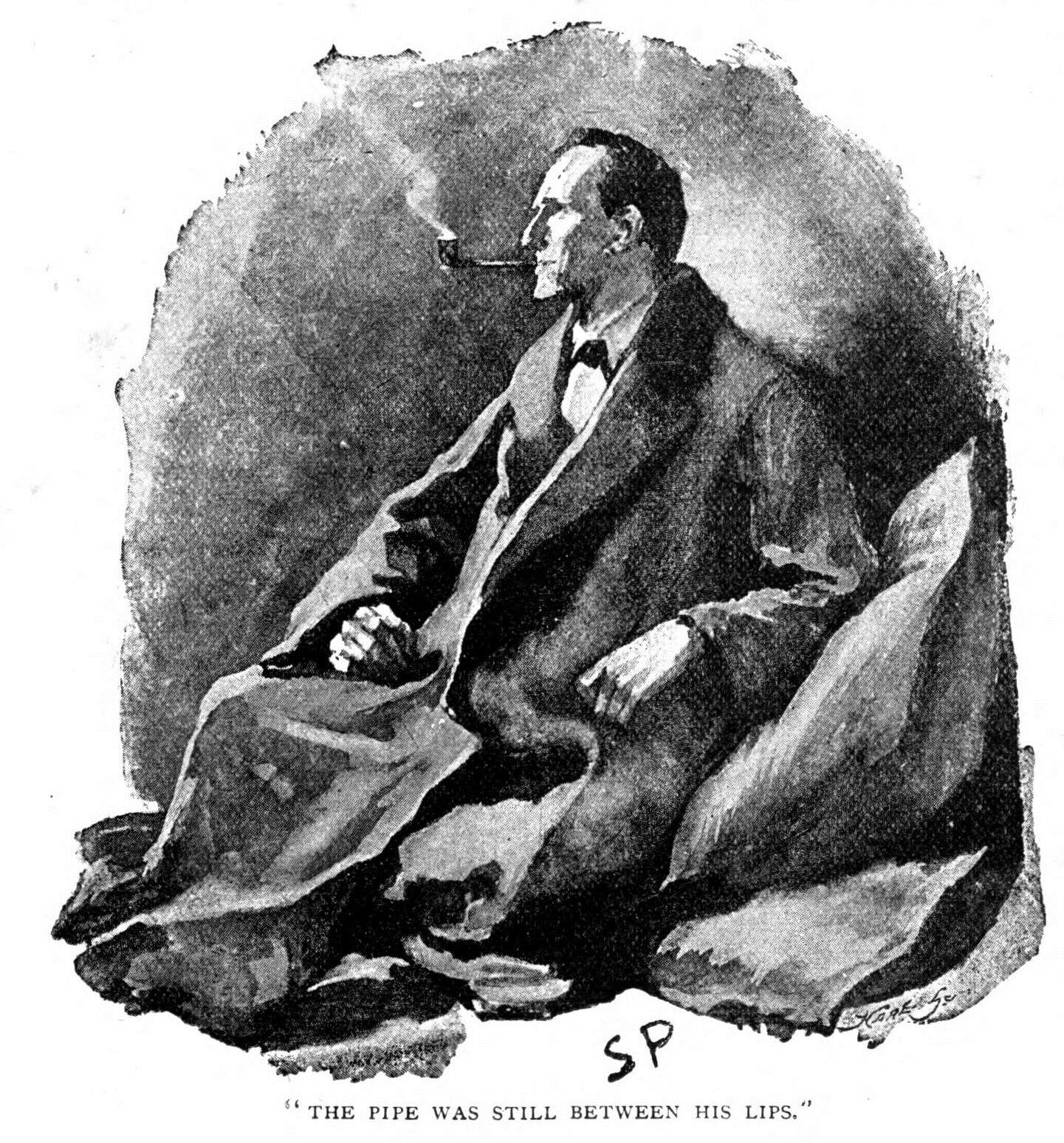Holmes Alone

Doctors love comparing themselves to Sherlock Holmes, but it’s easy to forget that Holmes was not a psychologically well man.
Dr. Eric Lis is a physician, gamer, and author of the Skirmisher Publishing LLC sourcebook, Insults & Injuries.
Doctors love comparing themselves to Sherlock Holmes. A quick review of the medical literature turns up hundreds of papers with titles like “Sherlock Holmes and the case of the (insert unusual symptom here),” wherein some physician likens themselves to the famous detective for having solved the puzzle. This is only to be expected, really, since doctors are trained to think of themselves as detectives of the highest caliber, and I’ll wager that anyone reading this text can appreciate the pleasure of comparing oneself to important fictional characters. It’s easy to forget, though, that there’s a downside to this: Sherlock Holmes was not a psychologically well man.
In the original stories, Holmes is something of a mess. Most famously, he suffers from profound interpersonal difficulties throughout his life, suffers bouts of severe “depression” which are arguably closer to being an inability to tolerate boredom, and develops and eventually beats an addiction to cocaine. His poor mental health is glossed over in many of the stories’ adaptations, but in the BBC’s modern Sherlock series Holmes’ inability to function in society is a central aspect. If anything, this version of Holmes actually overestimates his own mental health problems; he repeatedly describes himself as a psychopath when he doesn’t do a very good job of meeting criteria for that disorder. It would be more accurate to argue that this version of Sherlock Holmes meets criteria for autism spectrum disorder, and more specifically, the now-defunct diagnosis of Asperger syndrome (high-ish-functioning autism). In some respects, that makes Benedict Cumberbatch’s interpretation of the character the closest ever to the original source material, because most other film and TV portrayals haven’t made Holmes look nearly as troubled as the original stories did.
It turns out that when you look it up, there’s a lot of evidence to suggest that Homes suffered from some form of mild Autism. Some thirty papers (that I could find without much effort; who knows how many exist if you really go looking) have argued that Holmes meets criteria for one type of Autism or another. On the one hand, Holmes is a deeply insightful observer and intuiter of human behaviour, which is something often challenging for people with autism spectrum disorder, but on the other hand, the stories portray him as having quite a number of autism traits, such as abnormal approaches to common social situation, difficulty sustaining basic conversations, difficulty sharing the interests of others, lack of ability to share others’ emotions, and difficulty maintaining relationships (or seeing the utility of doing so). Given his interest in mastering pretty much all human knowledge, it’s difficulty to argue that he has restricted interests, but he certainly demonstrates abnormally intense focus and a preoccupation for tiny details that others easily miss. All of this together, coupled with the fact that the symptoms clearly had a negative impact on his well-being and life satisfaction, constitutes enough evidence to give him a diagnosis. We could take this even one step farther, though, because a couple of years ago, one paper even argued that there’s an entire family history described in the Holmes stories, including his brother Mycroft and some great uncles. Holmes famously stated that his deductive powers and incredible memory ran in his family, of course.
All of this becomes relevant for our games because Holmes is, to many of us, the prototypical detective. Although we have a wealth of other detectives to choose from, few of them have ever captured the public’s imagination the way Holmes did (consider: when was the last time you saw a big-budget Hollywood picture about Hercule Poirot?). As much as we admire Homes for his brilliance, it’s worth pausing the consider how much of that brilliance accompanies, and is perhaps even a result of, mental disorder. And, if we can show that Holmes meets criteria for autism, what does that say about the armies of player characters out there with similar personality structures, interpersonal deficits, and absurdly high knowledge scores?




